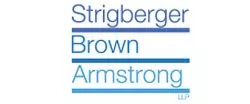In Wong V. Lui, the Court of Appeal for Ontario considered the interpretation of s. 15(4)(b) of the Limitations Act. Section 15(4)(b) of the Act provides that:
15 (4) The limitation period established by subsection (2) does not run during any time in which,
(b) the person with the claim is a minor and is not represented by a litigation guardian in relation to the claim
In this mater, the appellants were appealing a decision to dismiss their motion with respect to negligence claims involving building permits from 1987. The 1987 building permits were issued in relation to defective construction carried out on the respondents' home prior to their purchase. Essentially, the respondents Jessica Wong and Trevor Tan, jointly purchased a property on August 9, 2019. At the time of their purchase, Ms. Wong was 31 and Mr. Tan was 39 years old. After the closing of their purchase, the respondents discovered substantial structural, electrical, and other defects, including defective construction and violations of the Ontario Building Code.
On July 7, 2021, the respondents launched their action against the appellants, claiming damages in respect of the building permits opening in 1987 and 2017. The appellant argued that those claims are statute-barred as the respondents had commenced their action in July 2021, well after the expiry of the 15-year ultimate limitation period under s. 15(2) of the Act on January 1, 2019.
The motion judge determined that the ultimate limitation period under s. 15(2) did not run from 2004, when the Act was passed and the ultimate limitation period was imposed, to 2006, when the respondent, Jessica Wong, turned 18. As a result, the motion judge concluded that the ultimate limitation period did not begin to run until Ms. Wong reached the age of majority on July 11, 2006. Her action against the appellant was therefore not statute barred as she had commenced her action on July 7, 2021, less than 15 years after July 11, 2006.
The motion judge determined that "on a plain reading of s. 15(4)(b), the suspension of the ultimate limitation period is conditional on just two things: (i) the plaintiff must be a minor during the ultimate limitation period; and (ii) the plaintiff must not be represented by a litigation guardian with respect to the claim."
The sole issue on appeal was whether the motion judge erred in failing to conclude that for s. 15(4)(b) of the Act to apply, the claim must arise while the plaintiff is a minor.
Justice Roberts allowed the appeal and found that the motion judge erred in her interpretation of s. 15(4)(b). Justice Roberts stated that when correctly interpreted, s. 15(4)(b) only applies to claims that arise while plaintiffs are minors.
Justice Roberts stated that the motion judge did not take into account the specific purposes of the exceptions for minors and those under disability when coming to her interpretation of s. 15(4)(b). By failing to interpret s. 15(4)(b) in light of the specific purposes of these exceptions, the motion judge deviated from the legislative purpose that had remained constant for several hundreds of years in the section's predecessors, such as in s. 47 of the former Limitations Act.
Justice Roberts stated that the plain language of s. 15(4)(b), "the person with the claim is a minor", is in present tense and links the person with the claim to the present state of being a minor. Justice Roberts stated that if the legislation meant to include persons who were minor at any time during the running of the ultimate limitation period, the text would have included the past tense, namely, "the person with the claim who was or is a minor".
Applying the requisite contextual and purposive approach, Justice Roberts found that the only interpretation on a plain reading of s. 15(4)(b) that is consonant with the other provisions of the Act, the fundamental purpose behind limitations statutes, and the centuries-old policy objectives of the legislation with respect to minors is that it only postpones the running of the ultimate limitation period for minors who have claims that arose when they were minors.
As a result, Justice Roberts allowed the appeal and set aside the motion judge's order. Justice Roberts declared that the limitation period for the respondents' claims in relation to the 1987 building permits expired on January 1, 2019, with the result that those claims are statute-barred.
See Wong v. Lui, 2023 ONCA 272
The content of this article is intended to provide a general guide to the subject matter. Specialist advice should be sought about your specific circumstances.
We operate a free-to-view policy, asking only that you register in order to read all of our content. Please login or register to view the rest of this article.


